Well, a dozen and a few honourable mentions because it was really hard winnowing down to a shortlist this year.
2023 was the year of Project Chunkster – a deliberate attempt to read some of the longer books on my actual and virtual shelves. I made a list of the longer novels in my library and decided to pick as many of them off as I could (though the two longest, A Suitable Boy and The Books of Jacob remain…).
Project Chunkster was a big success. Longer books (over 400 pages, sometimes a lot over) constitute five of my twelve end of year finalists. I still love a novella, but there’s something to be said for just inhabiting an author’s world sometimes.
Anyway, with that preamble, here’s my best of 2023. Since I didn’t manage to do Autumn updates some of these I haven’t talked about here before, but I still wanted to do an overall wrap-up post.
Best novel featuring a doomed love affair: Anna Karenina by Leo Tolstoy and translated by Rosamund Bartlett. I had mixed views on War and Peace (blasphemy I know) which I felt could have used a good edit, particularly with respect to the increasingly lengthy historical sections. No such doubts about Anna Karenina. This came close to my best of the year slot and the Rosamund Bartlett translation was absolutely excellent (thanks Guy Savage for pointing me towards it here). This is a rich novel absolutely packed with life and I adored it. One to read and reread.
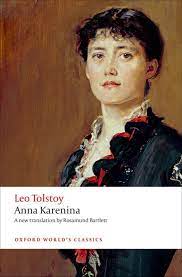
Best novel featuring scenes that are genuinely quite hard to read: Our Share of Night, by Mariana Enriquez and translated by Megan McDowell. This is a surprise entry for me as I wasn’t absolutely sure about it when I read it. I thought it was well written but suffered a bit from so what, as in so what did any of it matter. To an extent I still feel that, but in common with all my choices this year it’s absolutely stayed in memory. It’s over 700 pages and yet I still remember even minor characters and scenes. This is unapologetic horror fiction so only for those with strong stomachs. Grant’s review is here and the comment by Bookbii is I think particularly insightful.

Best faux-Gothic novel: Northanger Abbey, by Jane Austen. I have now read all the novels that Jane Austen finished in her life. I don’t think this is the best of them, it’s not even really the best one I read this year, but I did love it. It’s just so funny. Catherine Morland, the heroine, is an ordinary young woman to whom nothing very unusual happens, and yet Austen writes it all so portentously and in such high gothic style that it just becomes absurdly funny. Brilliant, and not I think what most people associate with Austen in terms of style. Heavenali captures quite how funny it is here.

Best fantasy novel I’ve read in a very long time: Jonathan Strange and Mr Norrell, by Susanna Clarke. In fact, I think this is genuinely one of the best fantasy novels I’ve ever read, up there with classics like Lord of the Rings, Wizard of Earthsea or The Shadow of the Torturer. Napoleonic fantasy isn’t I think a new thing, but this just has such wit and richness of character and story. I was going to link to a review by Karen over at Kaggsy’s Bookish Ramblings, but Karen hasn’t written one. If you see this post Karen and you haven’t read this I think you’d like it. Top tip, read it in hardcopy because Clarke puts most of the worldbuilding and a great deal of the humour into often very lengthy footnotes and they just don’t work well in ebook or audiobook form.
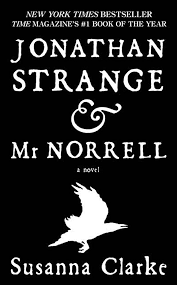
Best novel on a subject of absolutely no interest to me: Kick the Latch, by Kathryn Scanlan. I really had to be talked into reading this, because not only do I have no interest in horse racing I’m actually fairly antithetical towards it due to the animal welfare issues. So, a fictionalisation of the life of an American horse trainer really didn’t feel like my kind of book. As ever, execution is everything. This is superbly well written, somehow capturing the richness and complexity of an entire life in very few pages. I’m reminded of books like Stones in a Landslide and Train Dreams, both of which somehow pull off the same trick. An absolute triumph and genuinely meriting the hype it received. Jacqui wrote about it here and pushed me over the edge into finally reading it.

Best apocalyptic fiction: Termush, by Sven Holm and translated by Sylvia Clayton. I’ve undersold this really by billing it as apocalyptic fiction, even though it undoubtedly is. A group of rich survivors inhabit a hotel after a nuclear war has devastated the world, and as ever with hotel settings they form their own small society save here with perhaps no larger society left outside. It comes from the marvellous Faber Editions series which don’t seem to have a dud among them and its quiet examination of the morality of privilege remains highly relevant. Jacqui wrote about this here which I hope reassures those of you who don’t like science fiction that even so this is very much worth your time.

Best uncategorisable novel: The Twilight Zone, by Nona Fernandez and translated by Natasha Wimmer. Fernandez is one of my new favourite authors thanks to the influx of newly translated novels by Latin American women (Selvada is another favourite). Here Fernandez writes something that is perhaps a form of autofiction, save that instead of using fiction to examine her own life she uses it to examine the life of a torturer who handed himself in and exposed the secrets of the regime and his former comrades. It’s an extraordinary read, a work of perhaps-redemptive imagination not only examining the life of a man who did such terrible things but reclaiming into light the lives of many of his victims. It’s far from an easy read, but it is a hugely rewarding one. Radhika writes well about it here.

Best comic novel featuring architecture: The Forgery, by Ave Barrera translated by Ellen Jones and Robin Myers. This was actually a strong runner-up for the best shaggy dog story category, but the book of the year also won that so Barrera was left with this category (a good previous winner would be Will Wiles’ Care of Wooden Floors). A Mexican artist is tempted into becoming a forger, ends up a prisoner, and discovers he may even be haunted. It’s a rich brew and great fun. Impressively this is a first novel and given how much I enjoyed it I’m looking forward to a lot more from Barrera. Grant wrote about this one here.

Best slyly subversive novel: Convenience Store Woman, Sayaka Murata and translated by Ginny Tapley Takemori. Honestly I read this one as a bit of a palate cleanser and really hadn’t expected to like it as much as I did. Keiko is happy in her thirties working in a convenience store, a job most people take as students and quickly leave behind them. She’s under pressure to conform – to find a man and a better job and to fit in with society’s expectations. When she tries though things don’t quite go as expected… This manages to question societal pressures on women to conform while being darkly funny and easily made its way onto this list. One thing true of most of my end of year books is there’s not much else like them, and that’s definitely true in this case. I’ll link to Tony’s typically insightful review here on this one.

Best novel by an old favourite not read in many years: The Comedians, by Graham Greene. This was my Jolabokaflod gift this year from my wife (google it, you can thank me later!). I love Greene but haven’t read him in ages and had entirely missed this one. It’s the story of three Westerners, the comedians, at large among the horrors of Papa Doc Duvalier’s Haiti. It’s heart of darkness territory, though unlike Conrad’s novel the locals here are characters in their own right, some good, some bad, most neither. The hell of Haiti in this period becomes a trying ground in which compromise and courage come at odds with each other. There’s not a lot of bad Greene (though The End of the Affair is far from my favourite) but I thought this up there with many of his greats. A tremendous Christmas Eve read, if not perhaps a very festive one.
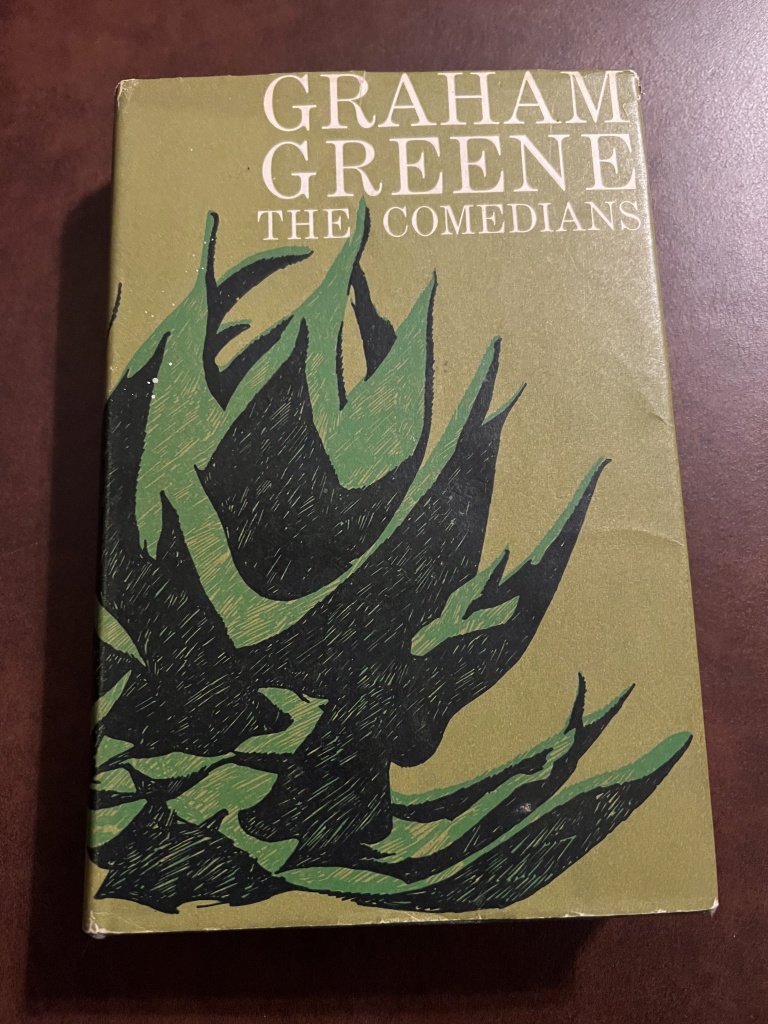
Best lifetime achievement award: Time Regained, by Marcell Proust and translated by Scott, Moncrieff and Kilmartin. Best achievement of my lifetime that is, though it’s no small achievement on Proust’s part either I admit. After the difficulties of The Captive and The Fugitive, often genuinely hard reading, we’re into the final strait as Proust brings his narrator back after a gap within the fiction of several years. The distance that provides enables Proust to bring together his themes of aging, memory, death and art in a sublime finish to the entire series. I’d like to thank Emma of Bookaroundthecorner who’s Proust readings really helped me when I got bogged down and stuck. Like Emma, I took years to read this but also like Emma I picked it up each time reading it as if I’d barely paused. Emma does a fantastic write-up of it here including describing how in this volume Proust explains his whole project. This is one of the greatest collective works I’ve ever read and deserves its fame, even if I still suspect most people who read it at all never make it past the first volume.
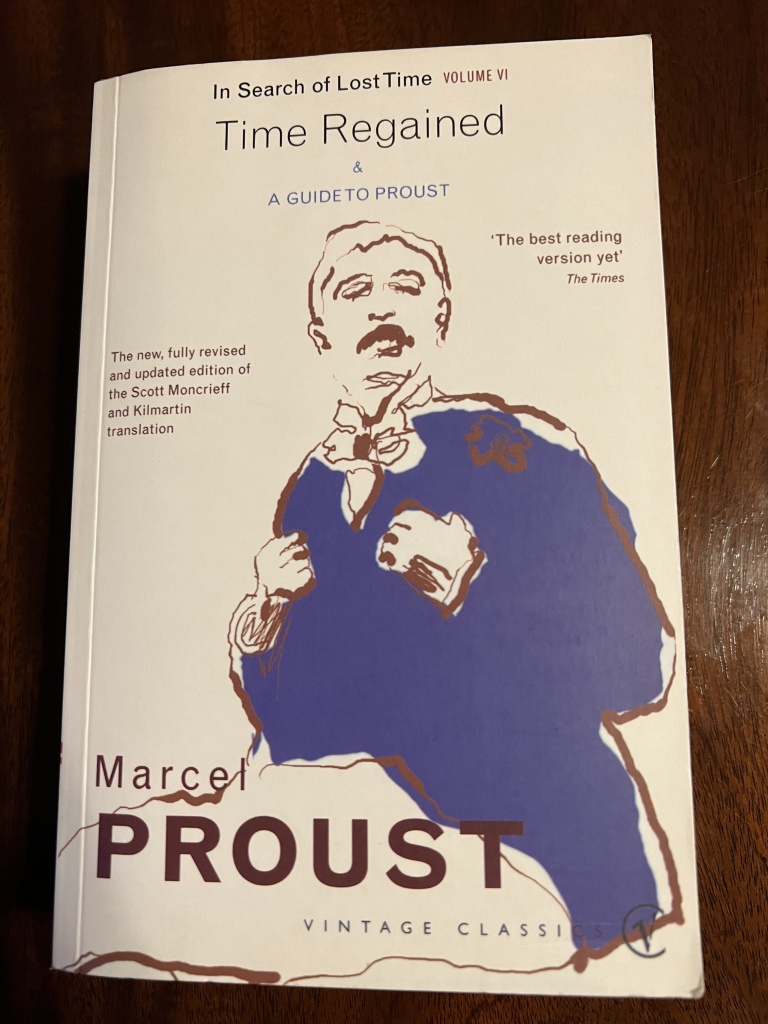
So, if not that, what could be my best book of 2023? It is, drumroll please:
Greatest shaggy dog tale ruined for generations of Americans by their having to read it in school: Moby Dick, by Herman Melville. What to say about this one? Well, I could say that Ahab doesn’t turn up until you’re over a 100 pages in and the White Whale doesn’t come onscreen until you’re fairly near the end. I could say it contains a bromance which a great many readers have seen as simply a straight up gay romance and they may well be right. I could say it contains hilarious pseudo-academic treatises on cetology and other subjects all of which were as wrong when this was written as they are today. I could say that it’s a novel of the sea and of obsession and like Tolstoy just absolutely full of life. I still wouldn’t capture it though.
The Proust is of course the greater overall artistic achievement. Even so, I think there’s more to this than it gets credit for even with all its fame. It’s funny, exciting, evocative, it contains worlds. It’s also exceptionally readable, assuming you’re reading it for pleasure and not as a class assignment… It pipped Proust at the post partly as it was such a surprise, so much not what I was expecting and instead so much more. Tremendous, and I still love this cover.

Honourable mentions
I have a few that almost made it on the list but in the end didn’t quite. These include Yukio Tsushima’s Territory of Light which I loved in part for its descriptions of the light flooding the protagonist’s apartment. Leo Perutz’ Saint Peter’s Snow which is an audacious thriller by one of the most under-appreciated Austrian novelists brought back to us by Pushkin Press. Georgi Gospodinov’s Time Shelter also impressed and felt very much of our current moment. Lastly, Gillian Clarke’s translation of early Welsh poem The Gododdin is a delight and publishing it with both Welsh and English text so you can see the rhythms of the original text is an inspired move. One for fans of The Iliad.
And that’s it! Project Chunkster won’t continue as a set thing in 2024 though I do still hope to read A Suitable Boy and The Books of Jacob this year (god knows when though). Thanks as ever to the various bloggers, not all named here, who’ve inspired me to read these and many other great books this year just past.
For the curious, I read 71 books in 2023, well down from 2021 and 2022 both of which I read over 100 in. Proving that volume really isn’t everything it’s as strong a reading year as any I’ve had, stronger than many in fact. The full list of books is set out below. Please feel free to ask about any of them.
Emma, Jane Austen
The Last Days of New Paris, China Miéville
The Captive, Marcel Proust
Tokyo Express, Seichō Matsumoto
Italian Ways, Tim Parks
Sisters, Daisy Johnson
The Judge and his Hangman, Friedrich Dürrenmatt
Stealing for the Sky, Adam Roberts
The Fugitive, Marcel Proust
The Girl with all the Gifts, MJ Carey
Anna Karenina, Leo Tolstoy
Intimacies, Lucy Caldwell
Our Share of Night, Mariana Enriquez
The Fell, Sarah Moss
Northanger Abbey, Jane Austen
Territory of Light, Yuko Tsushima
The Hunter, Richard Stark
Shards of Earth, Adrian Tchaikovsky
Hotel, Joanna Walsh
Suspicion, Friedrich Dürrenmatt
Jonathan Strange and Mr Norrell, S Clarke
Grief is the Thing With Feathers, Max Porter
Men in Space, Tom McCarthy
Belt Three, John Ayliff
Atlas of Remote Islands, Judith Schalansky
One Day all this Will Be Yours, A Tchaikovsky
Rosewater Insurrection, Tade Thompson
Familiar Things, Hwang Sok-Yong
The Three-Body Problem, Liu Cixin
Sidewalks, Valeria Luiselli
The Sing of the Shore, Lucy Wood
The Big Sleep, Raymond Chandler (audiobook)
Moby Dick, Herman Melville
Saint Peter’s Snow, Leo Perutz
The Dark Forest, Liu Cixin
Kick the Latch, Kathryn Scanlan
Last Summer in the City, G Calligarich
Termush, Sven Holm
Ten Planets, Yuri Herrera
The Twilight Zone, Nona Fernandez
The Dry Heart, Natalia Ginzburg
Our Lady of the Nile, S Mukasonga
Celestial Bodies, Jokha Alharthi
Ms Ice Sandwich, Mieko Kawakami
The Forgery, Ave Barrera
Child of Fortune, Yuko Tsushima
The Body in the Library, Agatha Christie
On Java Road, Lawrence Osborne
Jirel of Joiry, CL Moore
Persuasion, Jane Austen
Death’s End, Cixin Liu
South of the Border, West … Sun, H Murakami
Murder in the Crooked House, Soji Shimada
Strange Weather in Tokyo, Hiromi Kawakami
Convenience Store Woman, Sayaka Murata
Eyes of the Void, Adrian Tchaikovsky
The Moving Finger, Agatha Christie
Time Shelter, Georgi Gospodinov
Man in the Holocene, Max Frisch
The Goshawk, TH White
The Rise, Ian Rankin
After the Quake, Haruki Murakami
Aliss at the Fire, Jon Fosse
The Humble Administrator’s Garden, Vikram Seth
The Return of the Incredible Exploding Man, Dave Hutchinson
The Gododdin, Gillian Clarke
Sleeping Murder, Agatha Christie
Humiliation, Paulina Flores
The Eve of St Agnes, John Keats
The Comedians, Graham Greene
Time Regained, Marcel Proust


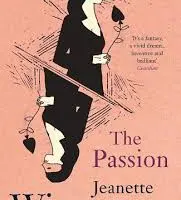
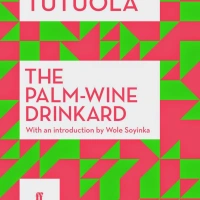
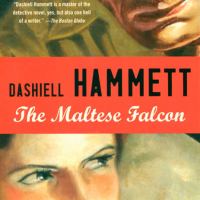
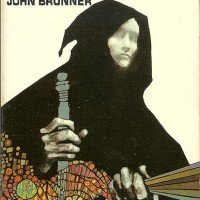
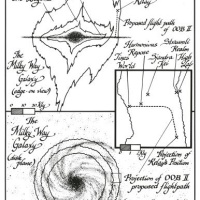
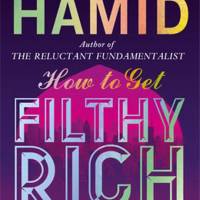
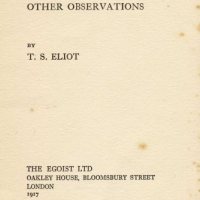
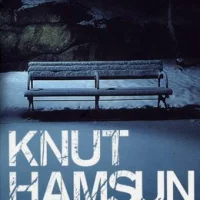



A very impressive list, Max.
Proust is amazing, isn’t he? He deserves all the fame and the diehard fans. The last volume is a mastepiece.
Thanks for the mention, btw and if you have time, check out my billets about the Proust exhibitions I attended. They might be of interest to you, with pictures of the real people behind the characters and infos about the writing of In Search of Lost Time.
I also enjoyd Convenience Store Woman.
I find Moby Dick daunting but maybe I should give it a try.
How was A Suitable Boy? I loved The Golden Gate but I’m not sure about reading such a long book in English.
Happy reading for 2024!
Ah, slightly disappointed that Territory of Light didn’t quite make it into your top reads, but if it was competing against Anna Karenina and Proust and the like, I’ll take highly commended as well! Looking forward to reading Termush from this list and I suppose at some point I will try Kick the Latch, although like you I have some concerns about horse-racing.
Apart from the classics (but not Proust) I’ve only read a few of your list. I thought Convenience Store Woman was very good, Murata’s next, Earthlings, has a grotesque ending, but it says a lot over a short span of pages.
Yuri Herrara’s Ten Planets didn’t make it to your shortlist. I read 3 of the 2023 Le Guin Prize shortlist, of which Ten Planets was one, and enjoyed it. But the winner, Arboreality by Rebecca Campbell, would have been my choice too.
As for clunksters, I set myself monthly challenges and I should pay more attention to the size of the book. This month I have to read and write up Okri’s Famished Road and it’s nearly 500 pp.
You have done well with tackling some of the ‘chunksters’ on your shelves – that is definitely my Achilles’ heel! I agree with what you say about Our Share of Night – I, too, had my doubts, but it has stayed with me. Proust and Moby Dick are still, so far, beyond me – but you make me believe it’s possible!
Such a great (and varied!) list of 2023 favourites, Max – as ever, your categories are truly inspired! I’m so glad to see Kick the Latch here. A rare instance of a book that truly lives up to the hype and possibly surpasses expectations – it really is that good. Termush didn’t quite make my end-of-year highlights, but it was bubbling under for sure – and, as you rightly say, you don’t have to be a big reader of sci-fi to enjoy it.
As for your other choices, Anna Karenina is fabulous. I actually have that translation on the shelf and may well revisit the novel through Bartlett’s lens. The Twilight Zone is also in my TBR, so hopefully I’ll get to it later this year, especially as it might be her best. That Graham Greene sounds terrific, too. I ought to go back to him at some point. Like you, I’m not a huge fan of The End of the Affair, but Our Man in Havana et al are hard to beat!
Wishing you all the best for 2024, Max, and I’m looking forward to seeing what you decide to read next! (As ever, many thanks for linking to some of my reviews – it’s always much appreciated.)
He absolutely is Emma. The sheer scale of what he does is extraordinary, and the depth too. I’ll take a look at the exhibition posts.
The thing with Moby Dick is it is as I say above a massive shaggy dog tale. It’s meandering, digressive, it’s a novel to soak into. It’s not a hard read though, just a very good big 19th Century novel with all that entails.
A Suitable Boy I didn’t get to – that’s for this year. My current read though is The Golden Gate which like you I’m loving.
Marina, if it’s any consolation on my first draft of this post it was in there! Sometimes what makes it in or not depends on the day I’m writing the post. Territory does have some extraordinarily good imagery.
Kick the Latch is tremendous even if you don’t like horse racing, as I don’t.
Normally I love Herrera, but Ten Planets just didn’t work for me. I’m glad it did for you though Bill. Arboreality I don’t actually know. I’ll look over at yours for it. How are you getting on with Famished? I’ve never read it.
Grant, it’s a rewarding project, I’d encourage giving it a go. I read less but to some extent better. I still love a short novel but a short Moby Dick would just be a story about a guy chasing a whale and wouldn’t be nearly as fun. Staying in memory was my main metric this year, which is why Our Share got in. I still think it’s flawed, but it really is memorable (some scenes I might wish were a bit less memorable…)
Jacqui, Termush made it as much for its cool tone as anything else, though I did think it was a fairly unique twist on that old thing of hotel as compressed society.
The Bartlett Karenina was really good. I have the Maudes’ too and I thought their translation of War and Peace very good, but there was a lovely freshness to the Bartlett. Such a rich book. Greene I think I actually prefer his entertainments, though I’m not always quite clear (nor sure I care) which he saw as his serious ones and which not. Our Man in Havana is brilliant. When we moved the Greene’s all got converted onto Kindle for space reasons and he’s one of the few writers we did that with that I’ve since regretted.
And all the best to you and anyone else who’s read this for 2024!
So many wonderful novels on your list and some like Termush that I would love to read. I don’t enjoy long books but I know I’m missing out as there are so many outstanding long books. I’m tempted by Our Share of Night. Not sure if it wouldn’t be too dark though. The many times I picked up Jonathan Strange but put it back on the piles . . . Such high praise coming from you though tempts me again.
Our Share is very dark. I’d try some of her short stories first if you haven’t already. Share includes violent harm to children too which for some is a redline.
Strange there’s a short story collection in the same setting. You could try that and see if the style appeals. One or two stories possibly benefit from having read Strange but I read the stories first and it was fine. The Ladies of Grace Adieu. The long book is better, but if you don’t like the stories you probably won’t take to Strange.
Thank you. That is good advice. Harm of animals and children is usually too hard for me.
I have Jonathan Strange and Mr Norrell on audio. Tempted by Termush.